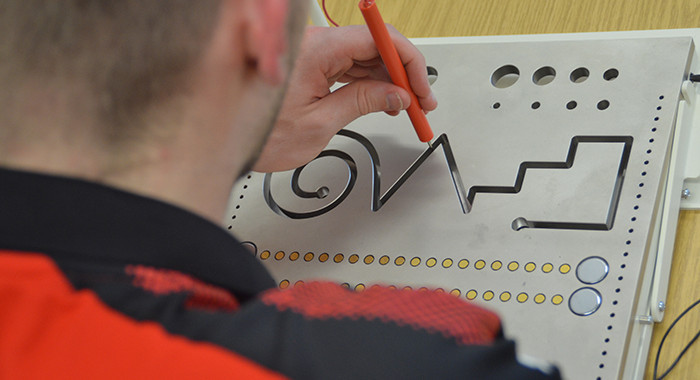Gaming and Health
Overweight - uneducated - unathletic: attributes that are often mentioned when it comes to the classic gamer profile. "These clichés are outdated," says Prof. Dr. Ingo Froböse, Head of the Institute for Exercise Therapy and Movement-Oriented Prevention and Rehabilitation at the German Sport University in Cologne. "Nevertheless the training and health behaviour of eSportswomen and eSportsmen still offers a large potential for improvement. This is the result of the current eSport study of the German Sport University Cologne, which was presented on 17 January 2017 in Cologne. Together with the Institute of Workplace Health Promotion at AOK Rheinland/Hamburg, Professor Froböse and his team interviewed approx. 1,200 eSportsmen and -women at various levels. For the first time, research focused on training and health behaviour.
The outdated gamer cliché
A key finding of the study was that the vast majority of respondents are young, well-educated and physically active: Around 84 percent of the respondents practice classical sports in addition to their eSports activities. In addition to ball sports such as football, fitness training and cycling are particularly popular. "However, the practiced exercise is still not enough, as only half of those surveyed achieve the recommended minimum of 2.5 hours of exercise a week. So there is still room for improvement," explains Froböse.
Training control with a need to catch up
One reason for this could be that eSport training takes place almost exclusively in digital form. Only one third of the respondents complete a targeted training course in order to become better. "The rest follow the principle 'a lot helps a lot' and hope to get better just by playing frequently. Holistic approaches that also include training away from the computer, are rare" says Froböse. With 20 hours and more playing time per week, 54 percent of the surveyed eSportsmen and -women spend an enormous amount of their free time in front of PCs and game consoles. Rolf Buchwitz, Deputy Chairman of AOK Rheinland/Hamburg, also sees a risk in this. The extended sessions inevitably entail longer sedentary behaviour patterns, which have a negative effect on health and cannot always be compensated by sport. "It is important for us to demonstrate this at an early stage and to develop target group-specific prevention offers for eSportsmen and -women of all performance classes," said Buchwitz. "As a health insurance fund, our goal is to harmonize eSport, which is practiced by millions of people, with health promotion.
Performance test enables target group-specific training concepts
The eSport performance test developed as part of the study serves as the basis, enabling a holistic analysis of the required skills of successful wSportsmen and -women. Among other things, it tests reaction speed, perception and physical fitness. The results provide the basis for the development of targeted training concepts based on classic sports. The aim is to improve not only the playing strength but also the health of eSportsmen and -women of all performance levels.
